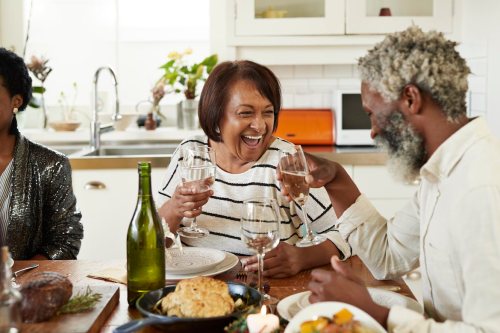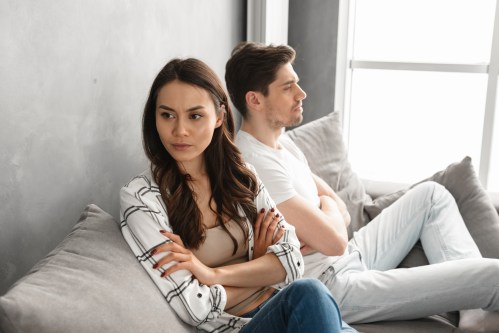Our hopes have pointed toward widespread vaccination since the pandemic took hold of the nation this time last year. With vaccination came the promise of a return to normal life. Now, two months into the rollout, we’re beginning to get a glimpse of that might look like. On Monday, the Centers for Disease Control and Prevention (CDC) released highly anticipated guidelines detailing what people who are fully vaccinated against COVID-19 can and can’t do.
Experts in This Article
biochemist, neurobiologist, antibody engineer, and senior scientist at GlaxoSmithKline.
chief medical officer of the Association of State and Territorial Health Officials
Those who have been fully vaccinated—meaning two weeks have passed since they received a second dose of the Pfizer-BioNTech or Moderna vaccines or one dose of the Johnson & Johnson vaccine—are free to interact with each other indoors without a mask, according to the CDC. They can also gather indoors with unvaccinated people from one other household as long as no one in the household has an increased risk for severe illness from COVID-19. And unless they live in a group setting like a correctional facility, if they’ve been around someone who has COVID-19, they don’t need to self-isolate or get tested unless they have symptoms.
So far, these CDC recommendations apply to the over 30 million people who are fully vaccinated against COVID-19. Nearly 59 million people in total have received one or more doses of a vaccine. “If it has been less than [two] weeks since your shot, or if you still need to get your second dose, you are NOT fully protected,” reads the CDC website. “Keep taking all prevention steps until you are fully vaccinated.” As the distribution of the Johnson & Johnson vaccine (which requires one dose and can be stored at regular refrigerator temperatures) revs up, more and more people will be able to be vaccinated.
Learn more about vaccines from biochemist Esther Odekunle, PhD:
However, some restrictions remain in place for fully vaccinated people. Social distancing and mask wearing are still recommended. Fully vaccinated people should take these precautions when in public spaces, when gathering with unvaccinated people from more than one other household, and when visiting those who are (or live with those who are) at increased risk of severe illness or death from COVID-19. They should still avoid poorly ventilated spaces and medium-and-large-sized gatherings.
It is still recommended to delay domestic and international travel, but those who do travel will have to adhere to CDC requirements and recommendations like mandatory testing and mask wearing on public transportation.
Although restrictions remain, they should not be seen as a signal that the vaccines aren’t doing their jobs.
“In our cautionary tone, I don’t want to lose the excitement that people should be feeling about this vaccine,” says Marcus Plescia, MD, MPH, chief medical officer of the Association of State and Territorial Health Officials. “This is an excellent vaccine. People in queues to get vaccinated are getting probably one of the best vaccines that has ever been made.”
While the CDC knows that these vaccines are effective at preventing COVID-19, researchers are still learning how effective the vaccines are against variants of the virus, how vaccines impact the spread of COVID-19, and how long the vaccines protect people.
Nearly 525,000 people have died from COVID-19 in the U.S., and though nation-wide case numbers have declined since the spike around the holidays, public health experts warn that aggressive variants, and premature lifting of mask mandates threaten our progress. As we continue to follow precautions and more people get vaccinated, we move closer to resuming life as usual.
Oh hi! You look like someone who loves free workouts, discounts for cult-fave wellness brands, and exclusive Well+Good content. Sign up for Well+, our online community of wellness insiders, and unlock your rewards instantly.
Sign Up for Our Daily Newsletter
Get all the latest in wellness, trends, food, fitness, beauty, and more delivered right to your inbox.
Got it, you've been added to our email list.











